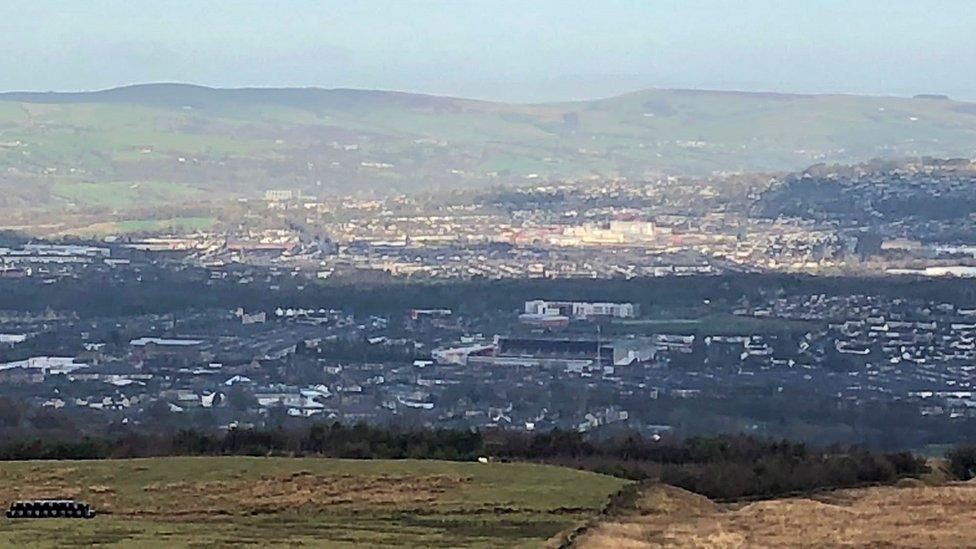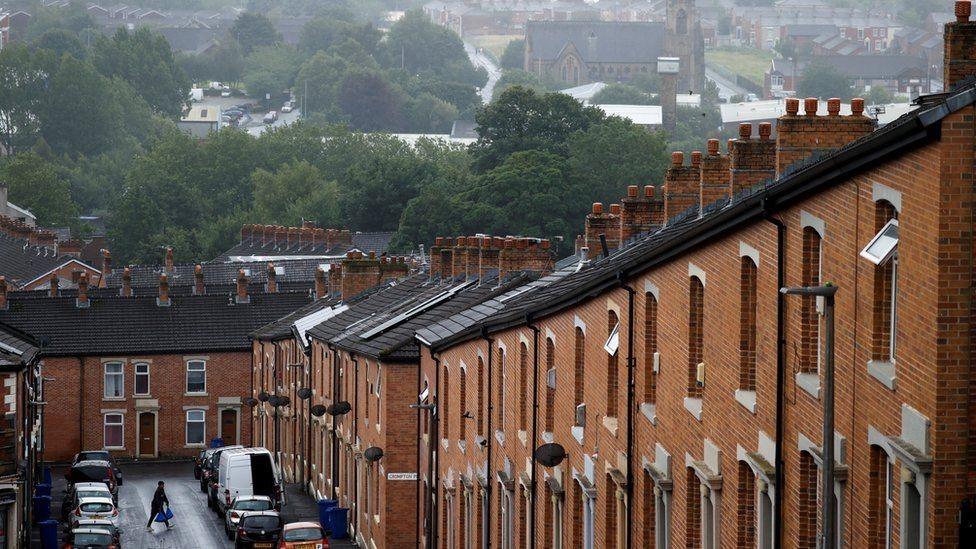Cost of living: North-South divide widens as prices rise, says report
- Published

Burnley Council's leader said the study's findings came as "no surprise" to him
The North-South divide is widening in the UK as the cost of living rises, according to analysis by a think tank.
The Centre For Cities study, external said the real inflation rate in Burnley in May was nearly 30% higher than in London and Cambridge.
It said Burnley faced 11.5% inflation, with Blackpool and Blackburn at 11%, while London and Cambridge had 8.8%.
Poorly insulated homes and a greater reliance on cars were blamed for the North being worse hit by rising prices.
The government said it "recognises challenges households are facing" and has provided a £37bn package of support to help people cope with rising living costs.
First payments are currently being made by the government to eight million people.
People living in the North, Midlands and Wales typically face being nearly £340 a year worse off than those living in the South, researchers found.
The think tank's director of policy and research, Paul Swinney, told BBC Radio Lancashire there were three main reasons for this.
He said more than 70% of homes in Burnley have low energy efficiency ratings, resulting in a "huge use of gas and electricity".
People in the Lancashire town tend to be more dependent on cars than those living in the South, he added, meaning they use more fuel.
Finally, Mr Swinney said average wages tend to be lower in the North.

Blackburn and Darwen Council's leader has called for more investment in housing
Burnley Council leader Afrasiab Anwar said the study's findings had come as "no surprise" to him.
"It is because of the levels of deprivation, the housing stock we have and the transport links - or lack of them," he said.
The Labour councillor called on the government "to stop the gap getting even wider" between the North and South.
"What's happened over the last 12 years is 'levelling down' and taking away things like housing market renewal which would have had a massive impact.
"We're not even asking for 'levelling up' - we are just asking for a return of what was already in place.
"We hear of investment in transport but it never happens," he said.
Phil Riley, leader of Blackburn with Darwen Council, also called for investment in housing to drive down energy bills.
He said 60% of homes in the borough were built before 1919.
A Department for Levelling Up spokeswoman said: "We're investing £6.6bn this parliament to improve energy efficiency across the country, benefiting tens of thousands of homes and delivering savings of £300 a year on average on their energy bills."
She said changes to Universal Credit mean 1.7m households will, on average, be £1,000 better off.

Why not follow BBC North West on Facebook, external, Twitter, external and Instagram, external? You can also send story ideas to northwest.newsonline@bbc.co.uk
Related topics
- Published14 July 2022
